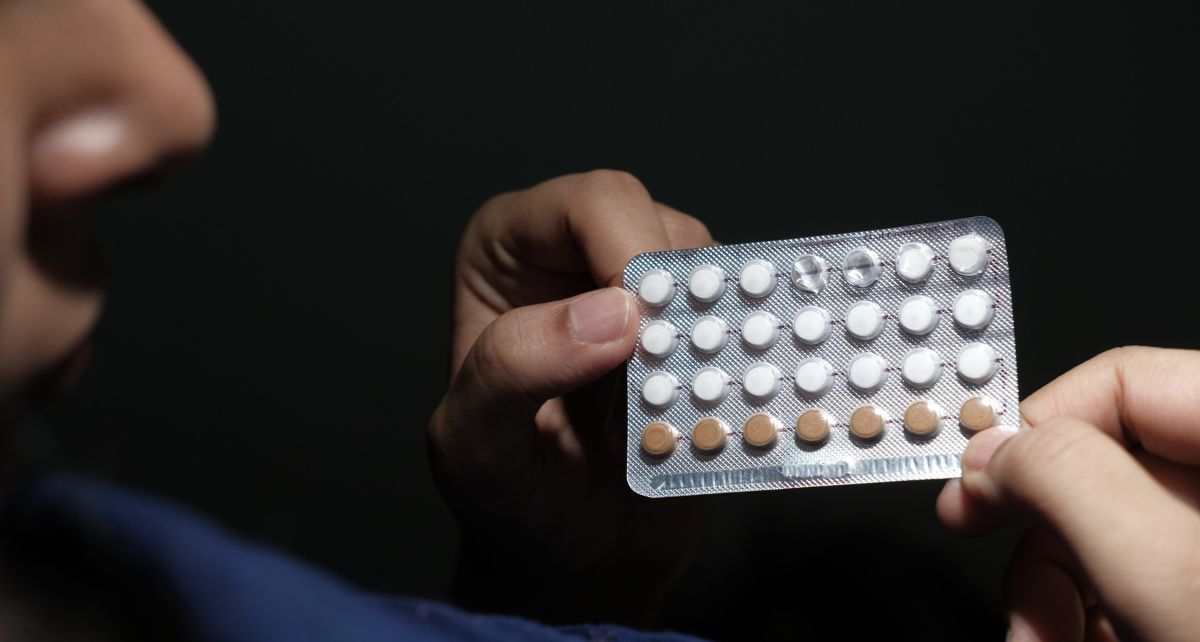Is My Period on Birth Control Real? If you’re taking hormonal birth control you may have noticed your period has changed. Periods often become lighter, less painful, and even change in consistency. Things may change so much that you wonder ‘is a period on birth control a real period?’
In short, no, a bleed on hormonal birth control isn’t a menstrual period, but rather something called a withdrawal bleed. This withdrawal bleed typically happens when hormonal birth control is stopped for a week which happens with the pill, the patch, and the ring.
Other forms of hormonal birth control, such as hormonal IUDs and the shot, also produce a withdrawal bleed due to the way the synthetic hormones alter the endometrial lining.
What exactly is a withdrawal bleed? How is it different from a menstrual period?
Withdrawal bleeds happen as a response to a drop in hormones. This can happen when you stop taking the hormonal birth control for a week, or rhythmically with the cycle if you have an IUD or are on the shot.
An organic, unmedicated, cycle will experience a true menstrual period as a response to no fertilization occurring during ovulation that month. When the body senses an egg is not fertilized, the egg disintegrates and signals to the body that the lining it has built that month to potentially house a fetus is not needed. This triggers the start of a menstrual period to shed the lining.
To build the lining during an unmedicated cycle, estrogen is mainly responsible for building the lining through the first half of the cycle. Progesterone is only notably present in large quantities during the end of the cycle to regulate and maintain the lining but does not have much of a role in building and thickening it. This is how a menstrual period is built and excreted.
A cycle with hormonal birth control keeps high levels of synthetic progesterone in the system throughout the entire month rather than just the end. This hormone thins the endometrium and makes it difficult for any embryos to implant into it. These synthetic hormones also generally stop ovulation from happening at all, meaning there is no period response to be had¹. The withdrawal from synthetic hormones causes some blood and mucus to be shed, which can look like a menstrual period, but it is not.
The big difference here is that the lining is maintained by the hormones you consume from birth control, rather than organic hormone signals from a menstrual cycle.
Why does it still feel like a period?
The placebo week: Originally birth control was designed to have a placebo week to create a withdrawal bleed that resembled a period to appease the Catholic Church in the 1960s². At this time, the Church would not allow barrier methods (condoms, etc.) as it was ‘unnatural’ and disturbed the organic cycle from playing out.
A Catholic gynecologist helping to create the pill wanted to find a way around this to allow Catholic folks safe access to birth control. By creating something that resembled a period, it could be accepted as a 'natural' form of contraception based on hormones already present in a menstruating body. While the Church still deemed any contraception ‘unnatural’, the placebo week was born. And it stuck.
Hormonal withdrawal: In reality, that drop in hormones to trigger a withdrawal isn’t medically necessary. Research is finding great benefits to the continuous use of hormonal birth control to essentially skip withdrawal bleeds. This can be beneficial for a plethora of reasons such as those with gender dysphoria, painful periods, endometriosis, and to allow folks to be in better control of their cyclic lives.
As with most things related to research in reproductive health, there is a lack of funding and thus limited information to support the long-term effects of birth control and/or continuous birth control use skipping withdrawal bleeds. Always talk to your health provider to determine what is best for you, and take your pharmaceuticals as directed.
Whether you have a menstrual period or a withdrawal bleed, you can honor that bleed in any way you wish. One is not more valid than the other, and both are important and valid ways to bleed.
References
-
Wright, K., & Johnson, J. (2008, October). Evaluation of extended and continuous use oral contraceptives. Retrieved April 07, 2021, from https://www.ncbi.nlm.nih.gov/pmc/articles/PMC2621397/
-
Cassella, C. (2019, January 21). The sugar pills in your birth control pack were put there to placate the pope. Retrieved April 07, 2021, from https://www.sciencealert.com/the-sugar-pills-in-your-birth-control-pack-are-only-there-to-placate-the-pope
